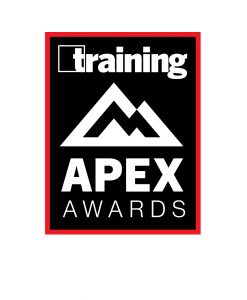Impact Networking, LLC’s Unified Support Operations (USO) Service Desk serves as both an entry point for IT talent and a Tier 1 client support hub, providing a pathway for career advancement within the business services company. The Managed IT: Unified Support Operations (USO) Onboarding Program was developed to increase first-call resolution at Tier 1, maintain or increase client satisfaction through net promoter scoring (NPS), and expedite time to promotion.
This program addresses the IT labor shortage, where industry reports indicate a high attrition rate for IT professionals, whether insourced or with outsourced/managed service providers (MSPs). To meet the demands of Impact’s rapidly growing Managed IT, Managed Print, and Managed Cybersecurity services, the company needed to do more than just hire skilled talent; it had to develop its own pipeline of advanced engineers from within.
Program Details
The Managed IT: USO Onboarding Program is a nine-month structured accelerator designed to promote entry-level analysts to core engineers. Some 13 percent of Impact’s current total workforce was trained as part of this program.
It integrates technical certifications, customer service training, conflict resolution, and troubleshooting skills. The program combines instructor-led training (ILT), on-the-job coaching, reverse-shadowing, and third-party certifications.
The program begins with a one-day USO Bootcamp ILT, where new analysts are introduced to ticketing and dispatching technology. Over the next three months, they shadow senior engineers, review call recordings, and complete CompTIA A+ certification while being evaluated on customer service skills and key metrics such as ticket count.
Upon meeting these requirements, analysts are promoted to advanced analysts and undergo a three-day Managed IT Core ILT, gaining exposure to Managed IT leadership and processes. At this stage, they continue on-the-job training, tackle technical troubleshooting, and must complete the CompTIA Net+ certification while meeting performance targets, such as handling three tickets per hour.
Once advanced analysts meet all goals, they are promoted to senior analyst, taking on tickets for top clients, completing CompTIA Server+ and Security+ certifications, and reverse-shadowing new analysts. Successful completion qualifies them for promotion to core engineer.
This program is reinforced daily with dedicated professional development time, giving each USO team member one hour per day out of the ticket queue to focus on development, primarily for completing third-party certifications. Analysts meet weekly with their supervisor to review metrics and goals, and prepare for certification exams. Daily on-the-job coaching reinforces desired behaviors and addresses areas for improvement. USO trainers support this program as a stretch project, assisting supervisors with program reinforcement alongside their other responsibilities.
Results
By the end of 2023, significant improvements in analyst behavior were validated: Analysts’ average time to answer calls decreased 88 percent, and their average response time to customer e-mails dropped 91 percent.
The program also expedited time-to-promotion, with the average tenure on the Service Desk decreasing to 2.6 years, surpassing promotion targets by 30 percent. This resulted in 54 internal promotions from the USO in 2023. In addition, the program contributed to a 79 percent retention rate.




